Irish Left Archive Podcast Number 44: Vincent Doherty: Official Sinn Féin, International Marxist Group, Troops Out, People’s Democracy, H-Block Committee, Sinn Féin – reblogged from The Cedar Lounge Revolution
I first met Vincent Doherty in the late 1970’s via People’s Democracy and the Fourth International. Since then we travelled on different political paths, while remaining on very good personal terms. In 2022 Vincent and me – along with a group of left-wing activists who come from different but complementary streams of the Irish Left – have been working actively together in the Irish Left With Ukraine organization.
The comrades who publish the Cedar Lounge Revolution Blog come from a stream of the Irish Left which is different from Vincent Doherty and me. But we converge politically in 2022 on a very decisive issue – the genocidal imperialist Russian invasion of Ukraine.
On the left nothing stands still. There is a strong mistaken current dominant of the Irish Marxist left which does “what if” interpretations of historical events. This interview avoids that approach. It is much better to accept the past, warts and all. We cannot change the past, but we can with 20-20 vision learn from our history. We can apply that knowledge to the present day and the immediate future – which we can influence.
Rayner Lysaght Tribute – Irish Labour History Society Event
Rayner Lysaght RIP (January 30 1941 – July 2 2021) was a close comrade of Vincent and me for many years in People’s Democracy and the Fourth International. The Irish Labour History Society staged a commemorative tribute in honour of Rayner on May 14 2021. I delivered the speech below, which also deals with some of the events described by Vincent Doherty.
John Meehan January 2 2023
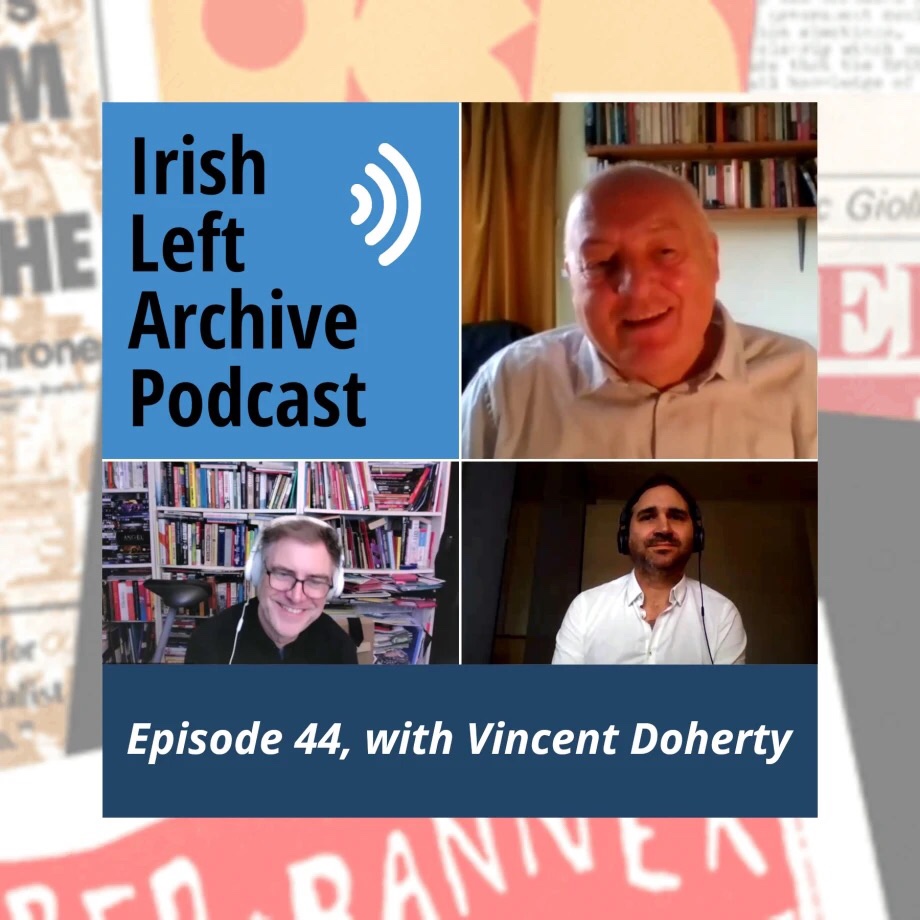
On October 5 2022 Vincent Doherty spoke to the Irish Left Archive about his political activism from October 1968 up to the present day. https://cedarlounge.wordpress.com/2023/01/02/ila-podcast-44-vincent-doherty-offical-sinn-fein-international-marxist-group-troops-out-peoples-democracy-h-block-committee-sinn-fein/
In this episode we talk to Vincent Doherty. Vincent has been politically active since the early 1970s, having grown up in Derry during the Civil Rights marches and outbreak of the Troubles. He joined the Official Republican movement in 1972 and was involved in Derry until moving to England in 1973. There he was briefly involved in the Socialist Labour League (SLL) before joining the International Marxist Group (IMG), and was centrally involved in the Troops Out Movement.
Returning to Ireland in 1979, he joined People’s Democracy (PD), which by that time was the fraternal organisation of the IMG through the Fourth International. As a PD member, he was heavily involved in the National H-Block/Armagh Committee. He stood as a general election candidate on the H-Block issue in 1981 in Dublin North Central. Having worked with Sinn Féin (SF) in the campaign, he argued PD should orientate towards SF, and eventually joined SF in 1982. Leaving SF in the late 1980s, he has subsequently been involved independently in campaigns and in Trade Unionism, for example as co-ordinator of Trade Union Friends of Palestine.
We discuss Vincent’s background in Derry and the events which led to his politicisation, his role in the Derry Republican movement and perspective on the Officials and the divisions which led to the formation of the IRSP; his work with the IMG and Troops Out Movement in England; his central role in the H-Blocks campaign during the 1981 hunger strikes; his move towards Sinn Féin and the influence of People’s Democracy; and his perspective on the contemporary left in Ireland.
This episode was recorded in October 2022. Many thanks to Vincent for taking the time to talk to us.
https://cedarlounge.wordpress.com/2023/01/02/ila-podcast-44-vincent-doherty-offical-sinn-fein-international-marxist-group-troops-out-peoples-democracy-h-block-committee-sinn-fein/
Rayner Lysaght Irish Labour History Society Tribute
A brief introduction
My name is John Meehan – and I first met Rayner Lysaght when I joined a small left-wing organisation – the Revolutionary Marxist Group (RMG) – some months after a May 1974 Loyalist Workers’ Strike brought down the Sunningdale Power-Sharing Agreement.
A few months after that strike I went to a political meeting about the north organised by a “two-nations” group in UCD, and a political row blew up about these issues. A small group of future friends also attended, listened to me with some astonishment, and said they agreed with what I was saying. They were members of the RMG and shortly after, I joined them. It helped greatly that these comrades were very much in favour of the growing women’s movement. On these two policy issues the RMG – which between 1977 and 1978 fused with People’s Democracy – was distinctive on the Irish far-left at that time. The organisation was affiliated to the Fourth International. Rayner was a founding member of the group, older than most of his other comrades. Some are here today, and I am sure they will say a few words after these introductory remarks are over.
A personal experience helped to shape my decision.
The political narrative in Ireland at that time was “Peace” and put down “the men of violence”. That was not the true complete story at that time – and it is not the true complete story today.
Left out of this narrative is the considerable amount of violence used by the Irish and British states and its allies to crush popular mass movements. A failure to deal with these issues today will store up worse problems tomorrow. That is certain.
The Dublin-Monaghan bombings
https://en.wikipedia.org/wiki/Dublin_and_Monaghan_bombings
On the afternoon of May 17 1974 I walked home from Dublin City centre to the family home in Cornelscourt on the city’s southside. The city was paralysed by a bus strike and, like many others, I started to hitch a lift when I reached Merrion Square.
I passed along Nassau and South Leinster Street – when I eventually arrived home, I switched on the radio and began to hear about the Dublin-Monaghan bombings. I passed by the location of a bomb maybe 15 minutes before it exploded.
A total of 35 people were killed on that day, many more were injured.
The dogs on the street knew that loyalist paramilitaries were responsible – but the Fine Gael-Labour coalition government in Dublin and the British administration headed by the Labour Party’s Harold Wilson was determined to do nothing about it.
In the words of the Wikipedia entry :
“In Leinster House, about 300 metres from the site of the South Leinster Street blast, political leaders spoke about the bombings at the next session of Dáil Éireann. Statements by government ministers appeared to suggest that the bombings were an inevitable result of the IRA campaign.[25] Taoiseach Liam Cosgrave, of Fine Gael, recorded his disgust and added:[26]
The blood of the innocent victims of last Friday’s outrage—and of the victims of similar outrages in the North and in England—is on the hands of every man who has fired a gun or discharged a bomb in furtherance of the present campaign of violence in these islands—just as plainly as it is on the hands of those who parked the cars and set the charges last Friday. In our times, violence cannot be contained in neat compartments and justified in one case but not in another.
That was it : the policy was “we must say or do nothing which could help the IRA.”
Loyalists from the north, certainly assisted by the British State, had caused the single greatest killing of innocent civilians during “the troubles” – and taoiseach Liam Cosgrave denounced people who had definitely not set off those bombs. It would be funny if the incident was not so serious : think of Rick – played by Humphrey Bogart in the film Casablanca – shooting dead the Nazi major Strasser in front of police chief Inspector Reynaud, played by Claude Rains. As police arrive Reynaud points to the blood-spattered corpse and calmly says “Major Strasser has been shot – Round Up the Usual Suspects”. In real Dublin life Inspector Cosgrave gave a friendly wink to the Dublin-Monaghan bombers.
Some months after that bombing I went to a political meeting about the north organised by a “two-nationist” group in UCD, and a political row blew up about these issues. I met members of the RMG and shortly after, I joined them. These comrades were very much in favour of the growing women’s movement. Two policy issues – ending the partition of Ireland and feminism – were a priority for the RMG – which in the late 1970’s fused with People’s Democracy. It feels strange saying this now – it seems like political centuries ago! – we campaigned for legalisation of contraceptives. I remember Rayner on some occasions illegally selling these items. Small numbers of foreign tourists in Dublin during those days must have been very baffled by this unusual sight.
The PD current supported the political objectives of the IRA, but did not agree with that movement’s politics (which were often militarist, anti-socialist, and anti-feminist) – the term we used was “critical support”. It is a valuable concept.
In 1976 the Dublin government decided against any commemorations of the 1916 Easter Rising, and officially banned a Sinn Féin march. A number of prominent people – including the Labour TD David Thornley – disobeyed the ban.
The RMG and PD often sought to organise useful political events through joint work with other organisations and individuals. We decided to organise a weekend conference commemorating the 1916 Rising, and its relevance to the present day. Rayner made all the initial contacts, a broad-based committee was established, and the proceedings were held in the ITGWU headquarters, Liberty Hall. Rayner contacted a wide range of participants including David Thornley, Pádraig Ó Snodaigh of Conradh na Gaeilge (father of the Sinn Féin TD Aengus Ó Snodaigh), Miriam Daly, Anthony Cronin, John Mulcahy (then editor of the current affairs magazine Hibernia), and Michael Mullen (then General Secretary of the ITGWU).
It was a pivotal event for political relations between PD and the RMG. A number of PD members from Belfast attended, including Michael Farrell. During a lively weekend of debate about the past and present, members of the two groups realised they had arrived at broadly similar policies on the events of the day.
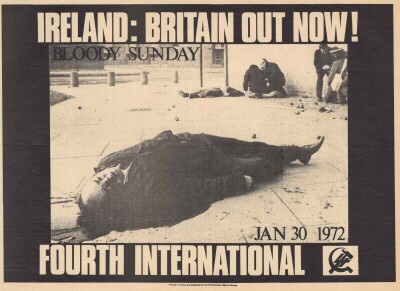
We were developing a strategic policy advocating the reconstruction of a mass movement in defence of Long Kesh and Armagh Jail political prisoners, most of them members of the IRA. The British government had decided to “criminalise” these men and women in the H Blocks. While Sinn Féin set a precondition – support the IRA’s armed campaign – we disagreed. We argued that the essential issue was political status for political prisoners. People could “agree to disagree” about the IRA’s armed campaign. Eventually, in 1979, SF publicly announced a change of policy at a mass meeting in the Green Briar Hotel in Belfast – and the National H-Block-Armagh Committee was founded.
We learned many of these political methods from discussions with other comrades in the Fourth International. Particular attention was focused on the FI’s role building the international anti-war movement against the USA’s assault on Vietnam. For example, FI supporters in the USA focused on the need for the mass movement to unite around a key demand : Troops Out Now!
There are connections with necessary and overdue urgent anti-war actions in the present day. Today the FI is prioritising the need for ongoing anti-war solidarity over the far-right and ethnic cleansing Russian invasion of Ukraine.
It is supporting the construction of a European Network of Solidarity with Ukraine – a small start for broad-based political work based on agreed principles such as Troops Out of Ukraine Now, Welcome All Refugees, and Victory to the Ukrainian People. It will be necessary for activists to agree in action about common policies, and set aside differences on secondary issues.
I wish to finish with a short focus on an issue which seemed dead after the signing of the Good Friday Agreement in 1998 – ending the partition of Ireland. The mechanism for ending Connolly’s predicted “carnival of reaction” – how right he was! – is a border poll. The godfathers of this agreement – the dodgy politicians Bertie Ahern and Tony Blair – calculated that there was no chance the border in Ireland would be voted out of existence any time soon. It meant a return to lots of hypocritical speeches about Ireland’s future, but no realistic prospect existed that partition would end. Political events have a habit of constantly wrecking careful plans – a law of unintended consequences often operates.
Brexit – a right-wing British exit from the European Union – is putting the Irish border back on the agenda, whether we like it or not. The voters of Northern Ireland rejected Brexit by a margin of 55 to 45 per cent. For the first time since the foundation of that state, significant numbers of people from a unionist background voted with the nationalists on a significant constitutional issue.
In that framework, we need to look at the relationship between current struggles and a possibly different state on this island in the foreseeable future.
A People’s Democracy bulletin opposing the 1983 anti-abortion amendment to the Irish Constitution discussed a Workers’ Party Árd Fheis decision to vote against extending the British 1967 Abortion Act to Northern Ireland. The WP later changed that policy, and the issue caused some friction inside PD. The author was Rayner Lysaght. Here it is :
“Despite their nationalist origins, the Workers’ Party are extremely anti-Republican……Republicans often object to any British Act on principle. This sort of approach is deeply rooted in the traditions of Irish Republicanism. It is based on absolute morality : things are black or they are white, and there are no intermediate colours or shades in the spectrum.
Rejection of all British Acts on principle may seem uncompromising. In fact it is juvenile. For example, at the turn of the century, many families were paid by the British state so that they could buy their own farmsteads. Members of these same families still did their bit for Ireland in the national liberation struggle. They participated in the armed struggle against the soldiers and police of the same British state that had helped Irish tenant farmers to buy their own land.
It is tempting to judge cases like this on their individual merits. But that can lead to opportunism…… It is much better to use this yardstick : Do Westminster Acts of parliament extend or contract the range of the British state’s repressive apparatus?
On this criterion all socialist republicans should support the extension of the 1967 Abortion Act to the North of Ireland. It is a necessary part of the struggle to achieve Free Abortion on Demand for all Irish Women.
We are working towards the day when all Irish people, men and women, will make democratic and socialist laws themselves in a 32 County Workers’ Republic…..That day will come nearer only if we support all progressive measures today. It is no good putting things off to a future “stage” that will be reached once we achieve Irish unity.”
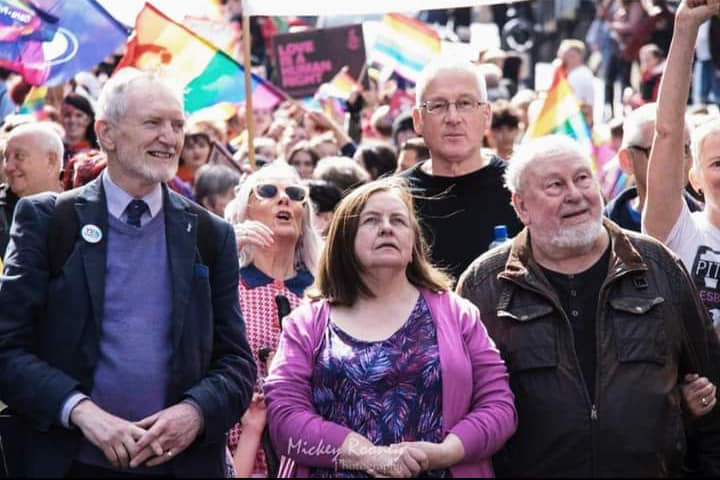
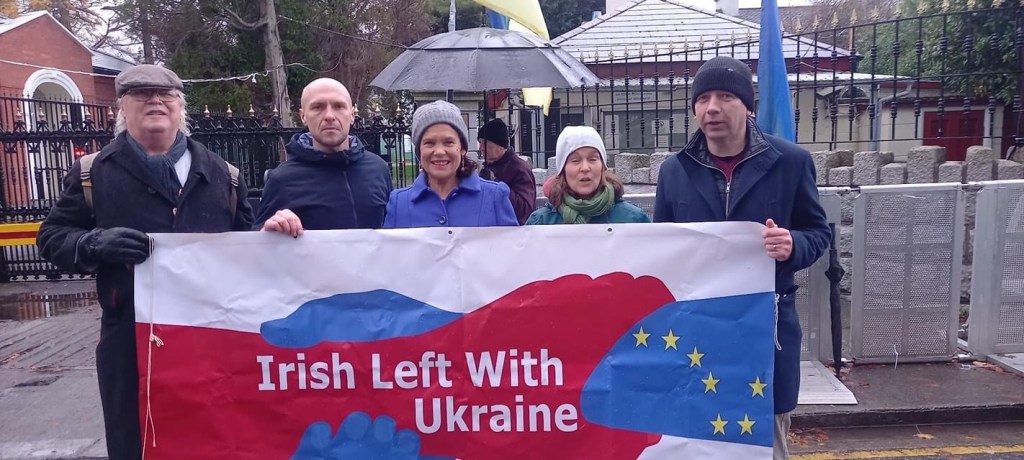
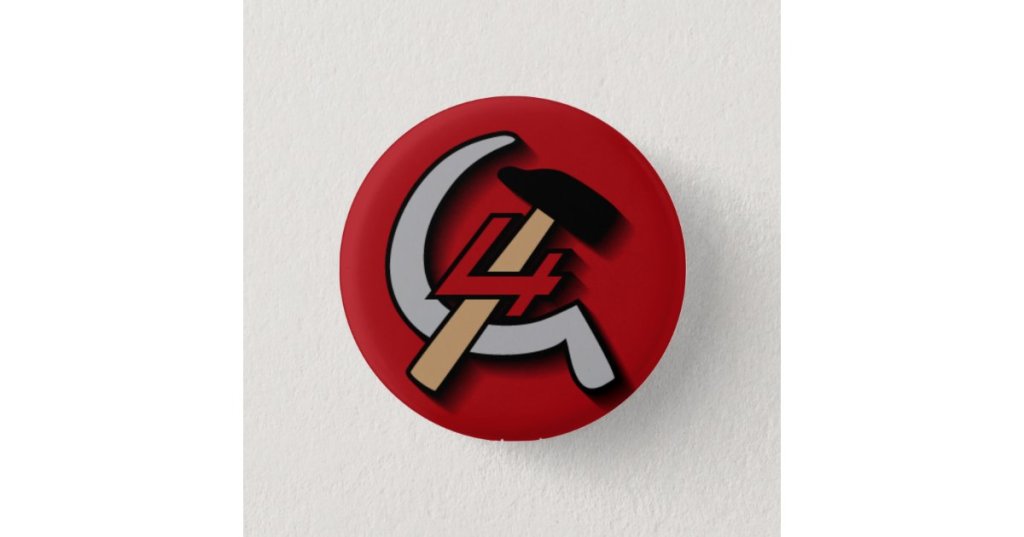

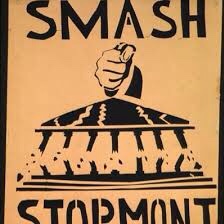

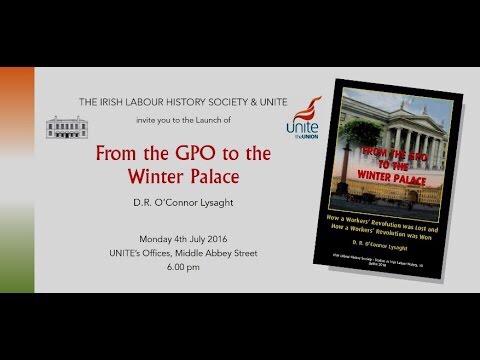
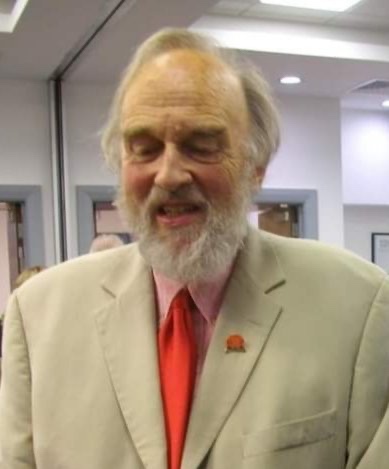


Today a big demonstration occurs in Dublin demanding an end to church control of the new national maternity hospital. We need citizens’ initiatives on a range of issues the health service, housing, climate change, and a complete end to austerity. And – last but certainly not least – we need a vibrant civil rights campaign to demolish repressive state apparatuses which have propped up our carnival of reaction – above all : get rid of the juryless Special Criminal Court!
John Meehan May 14 2022
Some Links :
Fourth International : https://fourth.international/en
Europe Solidaire Sans Frontieres (ESSF) : https://www.europe-solidaire.org/spip.php?rubrique2
European Network for Solidarity With Ukraine : https://ukraine-solidarity.eu/
Irish Left With Ukraine : https://www.facebook.com/groups/466892938791354
Written by tomasoflatharta
Jan 2, 2023 at 11:39 am
Posted in 2018 Referendum to Repeal the 8th Amendment to the Irish Constitution, “A Carnival of Reaction” - James Connolly’s Warning About the Partition of Ireland, Bernadette McAliskey, Bloody Sunday, Derry, January 30 1972, Brexit - Britain Leaves the EU, Derry, Derry Civil Rights March, October 5 1968, Dublin Governments, Ernest Mandel, Europe Solidaire Sans Frontières (ESSF), European Network Solidarity with Ukraine and against war Basic consensus, Fourth International, Good Friday Agreement 1998, History of Ireland, Human Rights, International Marxist Group (IMG), Britain, International Political Analysis, International Viewpoint, Ireland, Irish Labour History Society, Irish Left With Ukraine, Irish Republican Army (IRA), Left Unity, Left Wing Organisations, Legislation in Ireland to Legalise Abortion, Leon Trotsky, Mass Action, National Maternity Hospital (Ireland), People Before Profit, People's Democracy, Revolutionary History, Russian Revolution 1917, Sotsialnyi Rukh (Social Movement), Special Criminal Court, Ireland, Stormont, Lord Carson’s Tomb, Trade Union Campaign to Repeal the 8th Amendment, Ukraine, Ukraine : Women Raped by Russian Invaders, Ukraine Russia War 2022, Unionism, Women
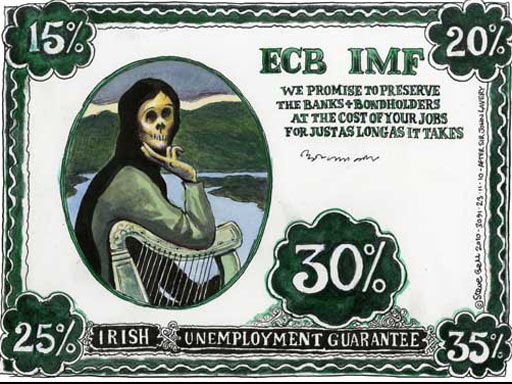
Leave a comment